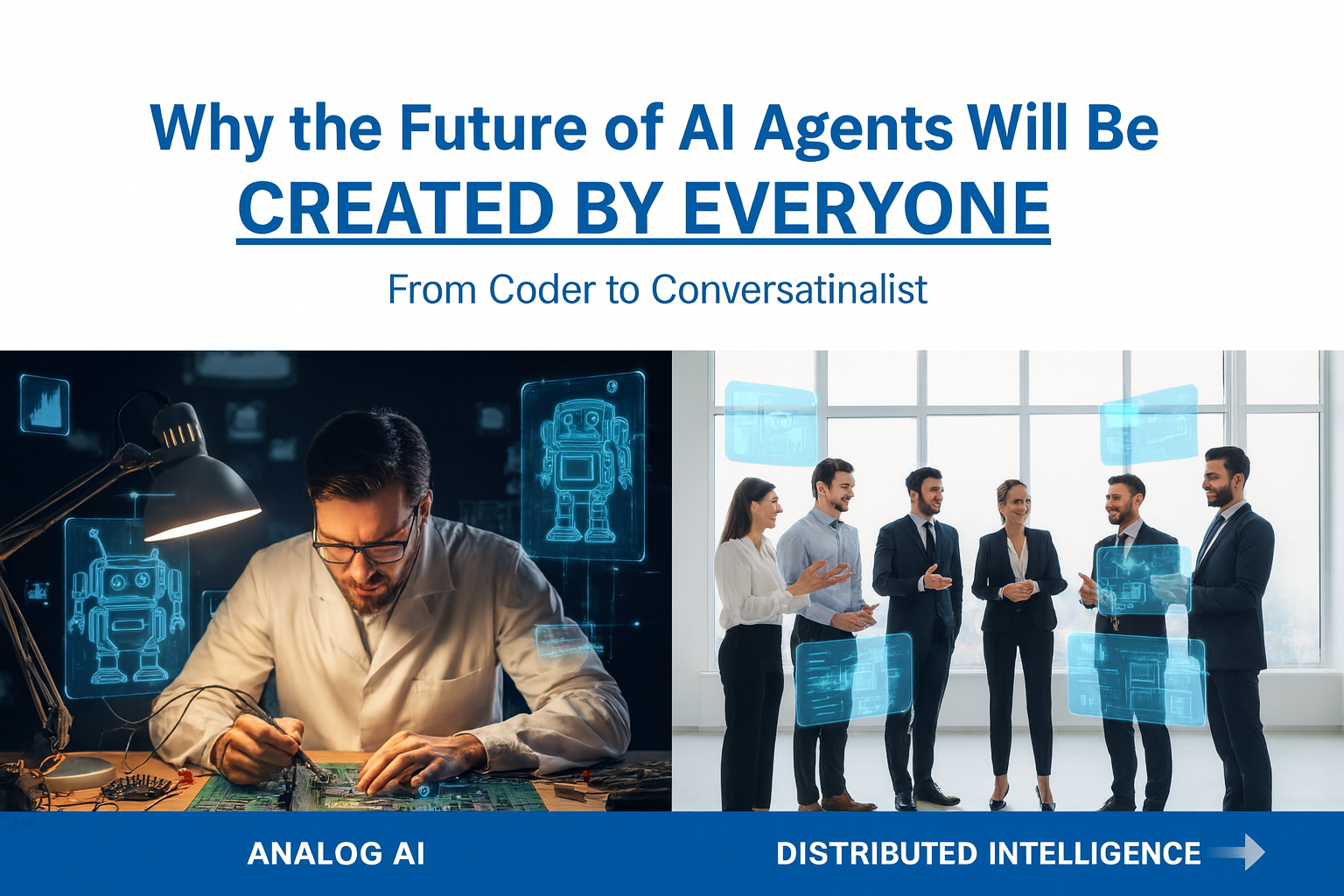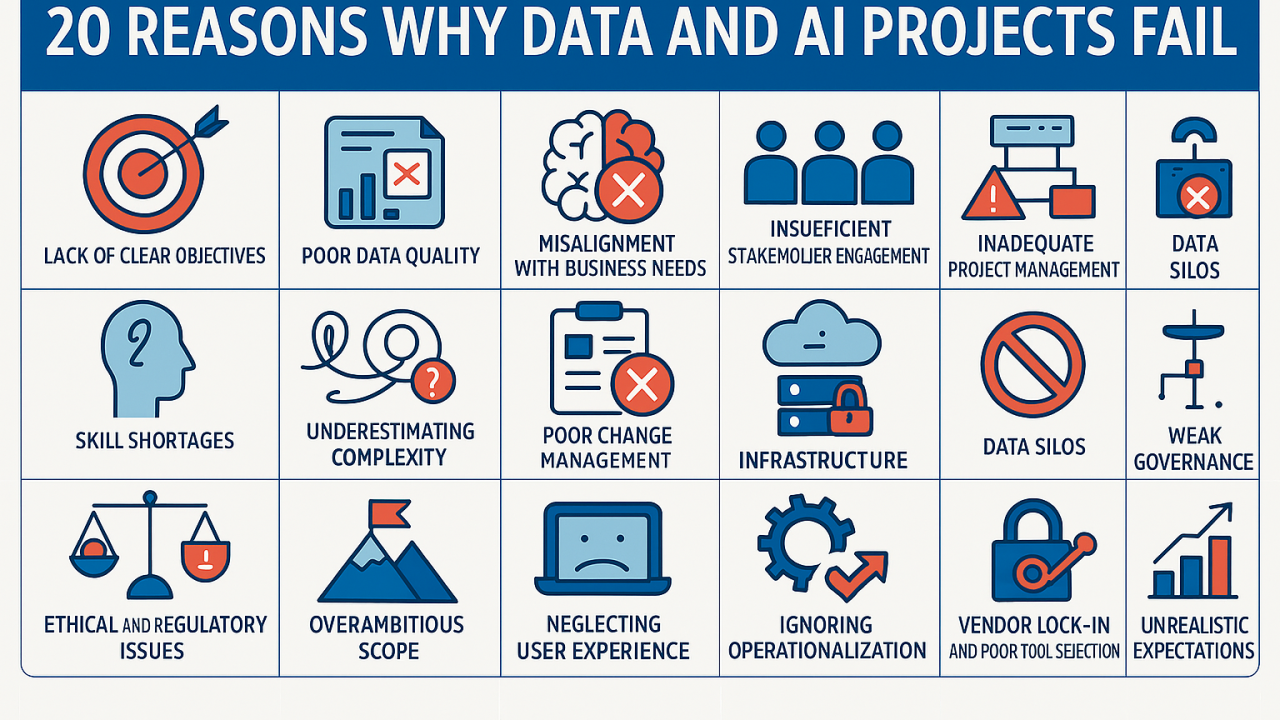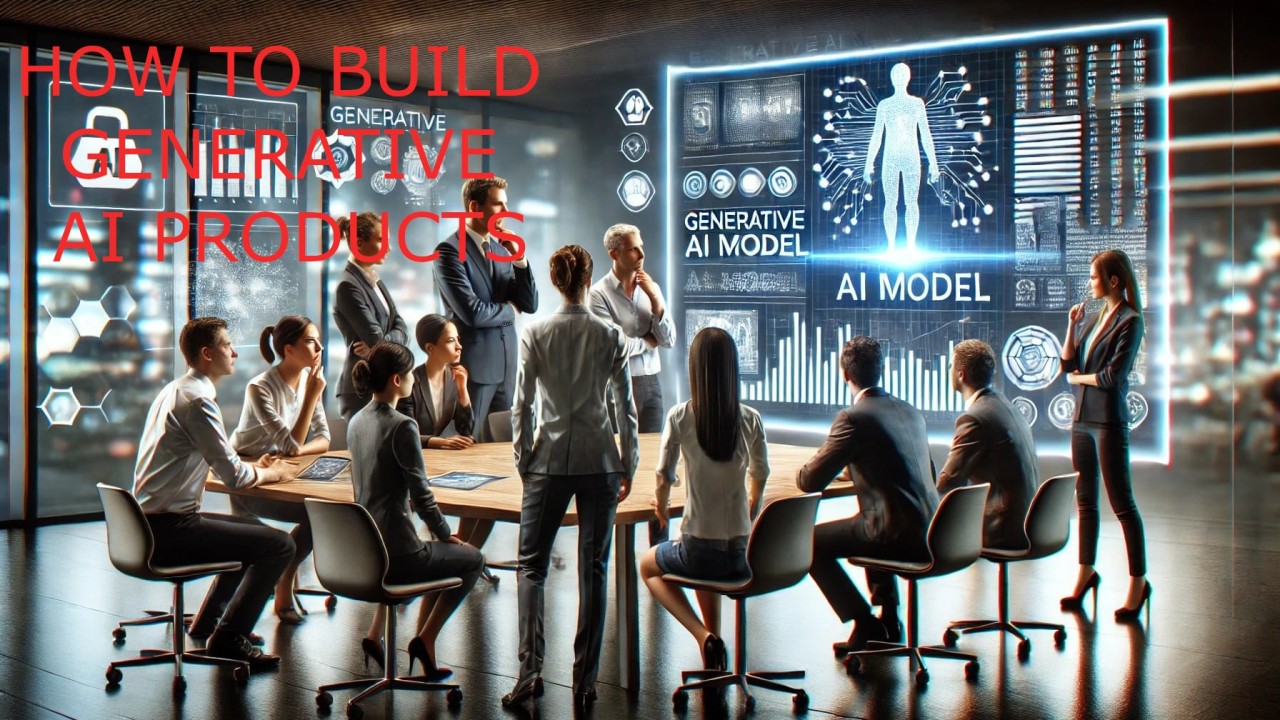

The shift is massive: from coders to conversationists. Anyone in a company will soon be able to build their own AI assistant just by describing what they need. That’s the end of “Analog AI” — and the rise of Distributed Intelligence.

Building an intelligent agent has been a "technical" exercise. You need to understand automation logic, manage APIs, handle complex data flows, a fascinating world, but one reserved for people comfortable thinking like engineers.
That was the era of what I call “Analog AI”, when each automation or agent has to be “developed by hand,” step by step, like developing a photo in a darkroom, even with new AI protocoles like MCP (Model Context Protocol) that integrate AI engines with applications and data.
That era is already ending (You might tell me you did not know it already started :-).
A new generation of tools is changing everything. The approach is no longer about programming an agent, but about describing one. We no longer build workflows — we converse.
And that shift makes personal agents finally accessible to everyone.
Where earlier platforms like n8n still required some technical mindset, we’re now entering an era where creating an agent feels natural, conversational, almost intuitive. For many non-technical professionals, this is a cultural shock: they will realize they can now build their own assistants, customized to their daily needs, without writing a single line of code.
It’s this accessibility — not the technology itself — that will reshape companies.
Many organizations are still stuck at the POC (proof of concept) stage of their AI agents. They’re testing and experimenting — but in a centralized, IT-driven, or innovation-lab context. That model is about to be disrupted: the democratization of agent creation will shift the value toward employees themselves.
Soon, every employee will have their own personal agent: – to organize tasks, – to analyze documents, – to track projects, – or to interact with internal tools.
And that autonomy will inevitably challenge the business models of companies trying to “sell ready-made agents.” When anyone can build one in minutes, the real value no longer lies in the agent itself, but in the governance, security, and orchestration ecosystem around it.
You want to see it in action: Try String, it already works. It's so easy, it hurt my technical expertise :-)
It’s crucial to distinguish between two very different types of agents:
The latter will always require strict oversight: – robust guardrails to prevent hallucinations, – human supervision, – deep system integration, – and governance managed by IT and business leaders.
But personal agents are a different story. For them, the barrier to entry has already nearly vanished — and that’s the real revolution.
This asymmetry — between the lightness of personal agents and the rigor of enterprise ones will define the new balance within organizations.
What’s happening here goes beyond technology. It’s a cultural transformation — the ability for anyone, regardless of background, to create and experiment with agents without relying on centralized teams.
For many companies, this will require a major mindset shift: – Accepting that innovation won’t always come from the top, – Providing safe frameworks without stifling creativity, – Building sandbox environments for experimentation, – And recognizing the collective value of individual agents.
The future won’t be a single, all-powerful enterprise agent. It will be an ecosystem of coexisting agents: – some personal, lightweight, and autonomous, – others collective, structured, and business-critical.
This coexistence will need to be designed, governed, and orchestrated, but it’s inevitable.
For the first time, the tools themselves are not the barrier — they are the catalyst.
In short, we are leaving the era of Analog AI and entering the age of Distributed Intelligence, where everyone becomes a creator of agents. And it’s this new capability, more than the technology itself, that will redefine how individuals, organizations, and artificial intelligence interact.
Want more? Explore all my other articles here: Axel Douchin on LinkedIn
#AI #AIAgents #ArtificialIntelligence #Automation #FutureOfWork #Innovation #NoCode #DigitalTransformation #AITools #BusinessStrategy #TechTrends #EnterpriseAI #HumanMachineCollaboration #AIFuture
Expert analysis on data, cloud, and change management.

Avoid AI an Data failure, learn from other company's mistakes

Not All Open Source AI Models Are Created Equal. Building the right AI product requires planning and testing. Picking the wrong ones could cost more than money.

Are you contemplating the idea of building your first AI product for your organization?
Expert guidance for seamless cloud and data transitions. Unlock value, ensure compliance, and lead with confidence.